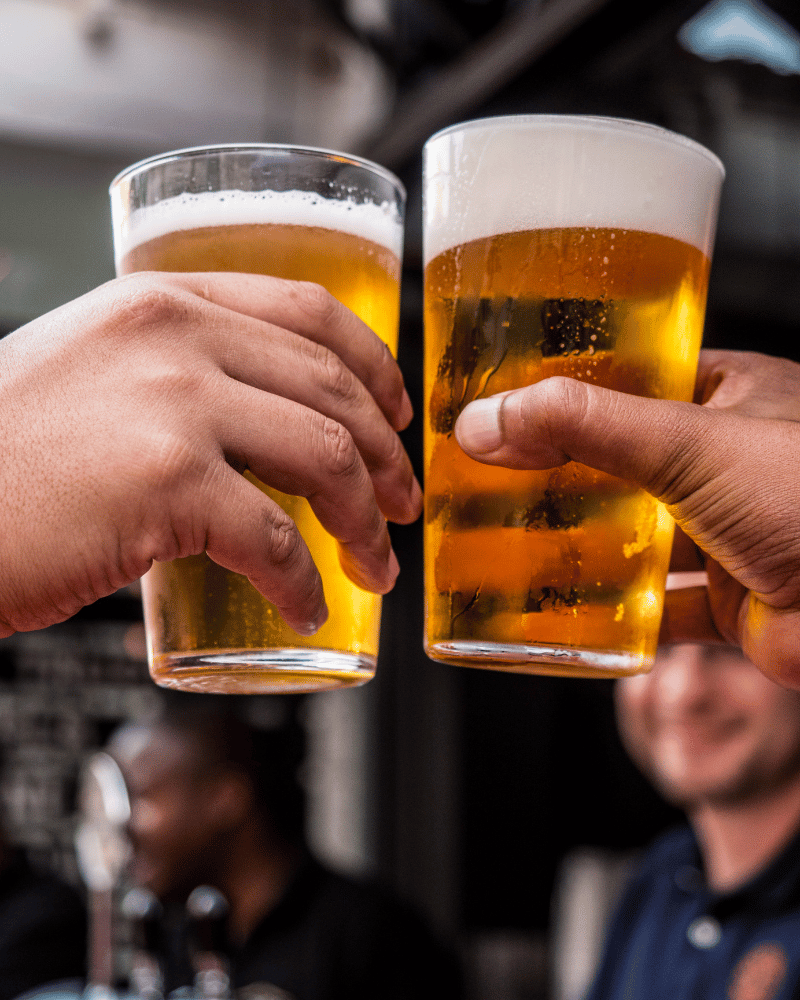Why is alcohol cessation so important?
Alcohol addiction can be both physically and mentally stressful and has a negative impact on many areas of life. The most common physical consequences include liver damage, increased risk of heart disease, nerve damage and a weakened immune system. On a psychological level, depression, anxiety and a drop in self-esteem are often accompanying symptoms that significantly impair quality of life. The social environment, including relationships with family and friends, also usually suffers from the addiction. The decision to quit is therefore not only a step towards better health, but also towards a more stable and fulfilling life that opens up new opportunities.
First steps towards alcohol cessation
The first step towards quitting alcohol begins with recognizing and accepting the problem - a crucial but not always easy process. Many people hesitate because they are unsure of how to take this big step in the first place. It often helps to tell the first person you trust, such as friends or family members or a doctor, about your plans. Together, it is often easier to find out which factors reinforce the addiction and how to combat it in a targeted manner. Honest self-reflection is also valuable in order to realize in which moments or moods the craving for alcohol is strongest. These insights lay an important foundation for further motivation and implementing the first small changes.


Support and advice
Alcohol cessation is supported by many different offers of help that can be individually tailored. For people who are initially looking for a low-threshold introduction, outpatient counseling centers offer valuable one-on-one sessions and group offers. Such discussions help to better understand the problem and to exchange ideas with other sufferers. Self-help groups such as Alcoholics Anonymous also provide the opportunity to share experiences and setbacks with others, which often significantly boosts motivation and stamina. Therapeutic support from experienced psychologists or therapy facilities also offers intensive support that specifically addresses individual needs and helps to prepare for the new path in life in the long term.
The role of withdrawal symptoms: What to expect?
A crucial part of withdrawal is coping with the withdrawal symptoms that can occur on the road to abstinence. Physical withdrawal symptoms such as tremors, sweating, palpitations and insomnia can be challenging and are often accompanied by psychological symptoms such as nervousness, irritability or depressive phases. Knowing about these possible symptoms is helpful as it allows you to prepare for this phase in a targeted manner and organize medical or therapeutic support. A doctor or therapist can not only monitor the symptoms and provide medical support, but also provide strategies and techniques for coping with this phase so that withdrawal is as safe and sustainable as possible.
Redesigning everyday routines: An addiction-free everyday life
A life free of addiction is often associated with the need to change old habits and routines. Alcohol often takes on a specific role in everyday life - be it as a means of relaxation, as a social catalyst or as an outlet for stress. It is helpful to find healthy alternatives in order to fill the resulting void and make the new abstinence sustainable. Exercise and sport can increase well-being and reduce stress, while hobbies such as cooking, creativity or learning new skills offer positive and meaningful activities. Meditation or breathing techniques for relaxation as well as a conscious approach to social situations in which alcohol has previously played a role can also help to remain stable and satisfied in the long term.

Dealing with relapses: What to do if it does happen?
Relapses are a normal part of the recovery process and also occur with many other types of addiction. It is important to understand that a relapse does not mean the end of the road. A relapse can be an important opportunity to get to know your own triggers and challenges even better and to develop strategies to deal with similar situations differently in the future. Consciously seeing relapses as learning experiences and not judging yourself helps to regain motivation and self-confidence. Talking to someone you trust, a therapist or a self-help group can also help you to accept the relapse as part of the process and set new goals that will help you on your way to permanent abstinence.
Long-term strategies: How do you stay abstinent permanently?
The long-term success of quitting alcohol depends heavily on how well you maintain your motivation and actively work on your new lifestyle. One of the most important strategies is to create a positive environment that supports your path. Being around people who are abstinent or who understand your situation can be incredibly motivating and help you resist temptation. In addition, new goals that have nothing to do with alcohol are a powerful driver - be it in the area of physical health, professional development or new hobbies. Regular self-reflection helps to recognize new challenges and thought patterns and to work on them in a targeted manner so that the addiction-free life remains permanently fulfilled and stable.






